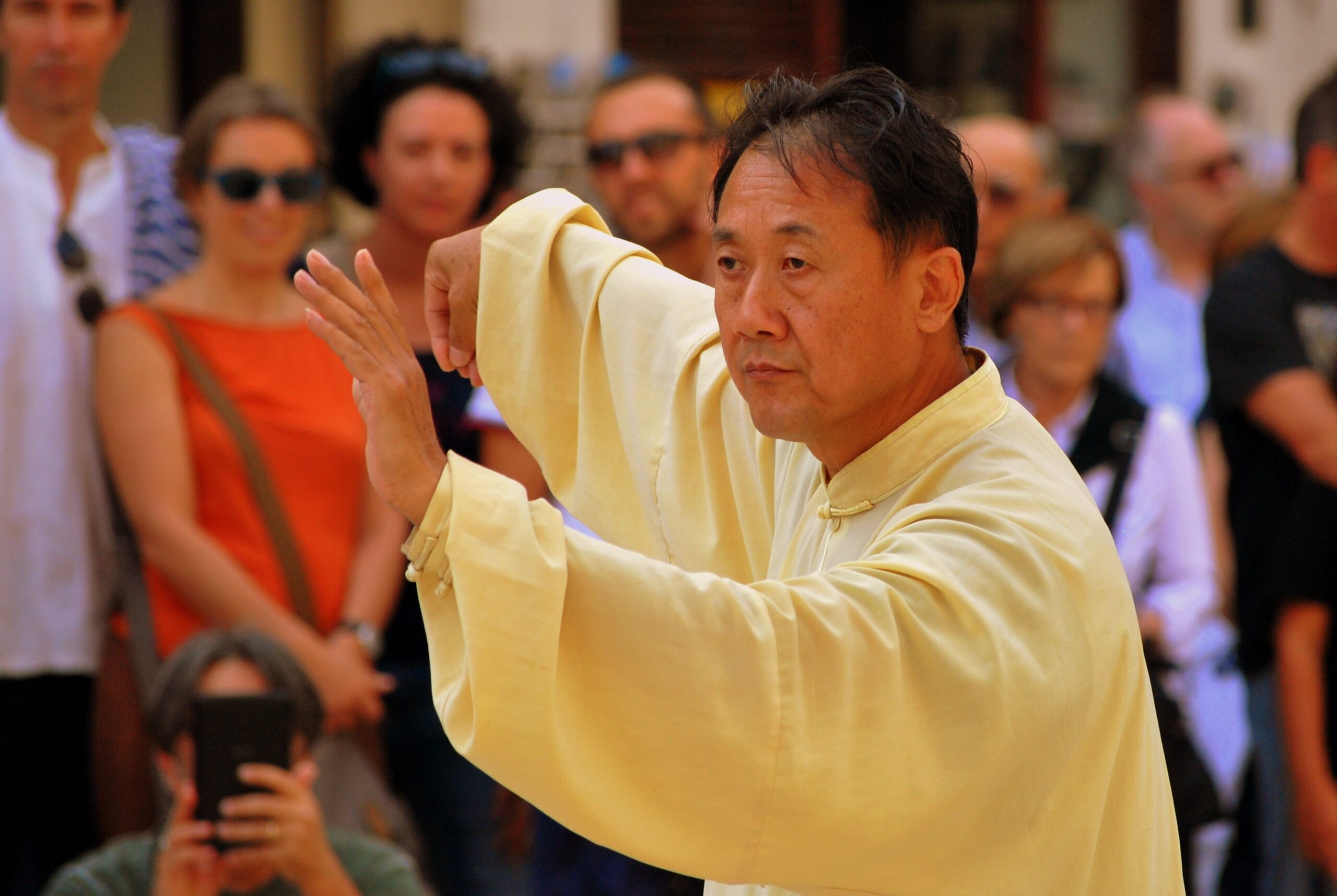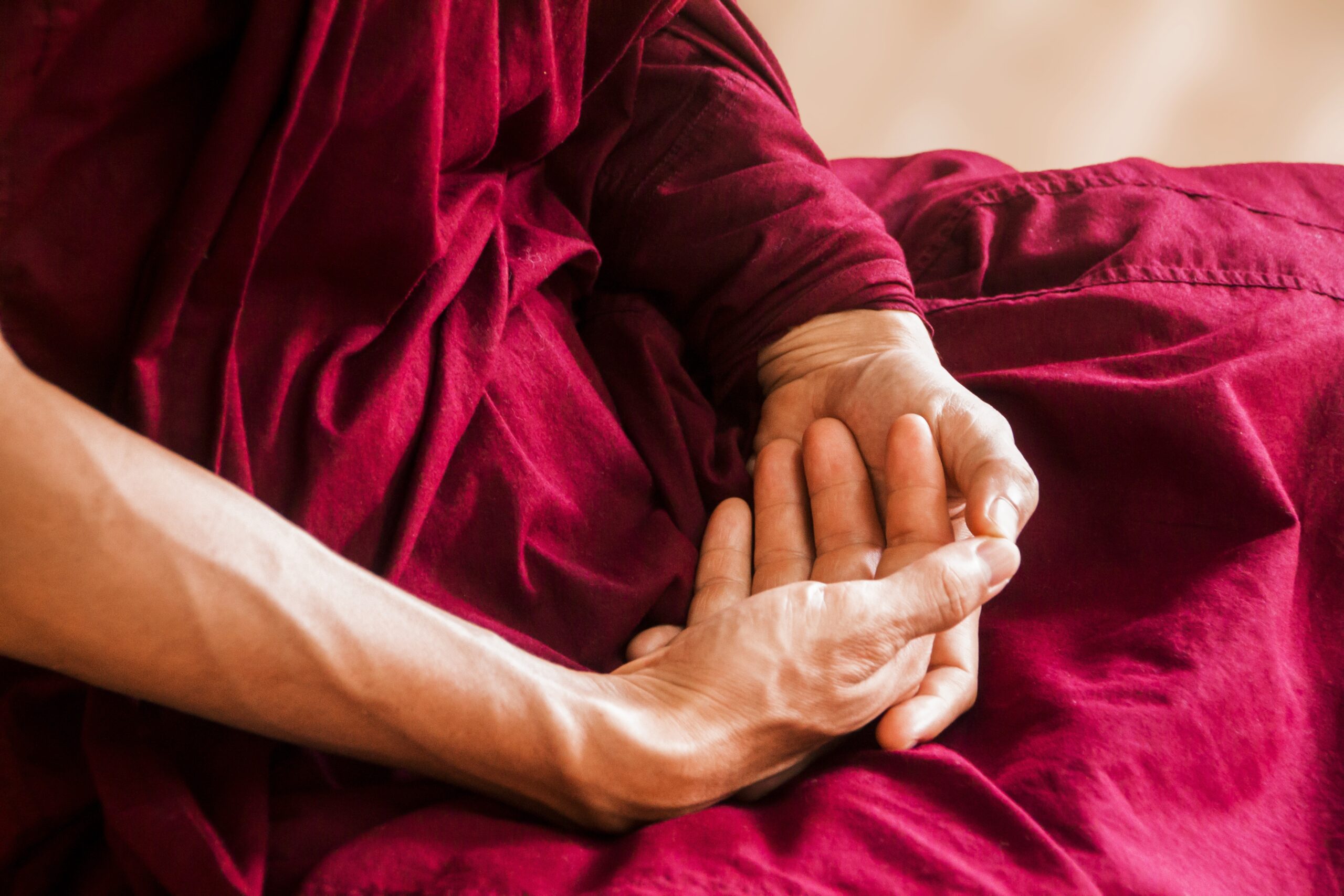A Profitable Business: New Age Qigong
Traditional qigong/chi kung has turned into a profitable business of New Age spirituality and money making opportunity.
China is not the only country to have problems with religious cults and groups with unclear intentions. Qigong has become so popular these days, it is little wonder that it attracts less sincere groups to jump on the bandwagon, so to speak.
Besides quasi-religious groups that offer chi kung/qigong to an unsuspecting public, there are New Age groups promoting New Age spirituality through qigong and other so-called “nonprofit” groups that take advantage of volunteering “graduates” who offer classes after they themselves have trained for barely a year.
Then there are also other non-religious groups that simply see qigong as a huge money-making opportunity. Even China is taking a piece of the action, offering guided tours to the Shaolin Temple and chi kung/qigong lessons to foreign or overseas visitors.
I have also met my share of business-minded “chikung/qigong masters”. Responding to one advertisement, I telephoned the self-proclaimed ”sifu” of a martial arts organization and asked about his background.
He had a heavy French accent, and he admitted that he was Caucasian, but insisted that he had received training in China at the Shaolin Temple, boasting of the many international awards and recognition he had received.
Because he had never seen me in person, he did not know I was Chinese. I knew he could not have trained in China, since at the time, China still had not opened its doors commercially to overseas Chinese, let alone admit foreigners through the sanctified doors of the Shaolin Temple.
After he finished a litany of his so-called achievements, I deliberately asked him in Mandarin, “Na, ni yinggai hui shuo putong hua, duibudui?” (“So you can speak the common language in China, right?”)
He immediately slammed down the phone, and when I tried to call back, not surprisingly, his wife informed me he was unable to take the call.
Some time later I met a student who claimed he had studied under this so-called “master” and found him to be a very capable instructor. I would not be surprised.
Just because someone lies about his background does not make him less able as an instructor — in this case, it just makes him a dishonorable businessman in a growing industry of dishonorable dealings. However, having caught him in a lie, how could I trust him in a “master-disciple” relationship afterwards?
Traditionally, the Master-Disciple relationship is based on trust. When a student is accepted by a master, he or she goes to live with the master and spends every day serving the master.
In return, the master treats the student as if he or she were his own family, entrusting the disciple with the secrets of chi kung/qigong.
Nowadays, living with the master is usually impossible, nor is it practical to spend every waking day working and training with the master. Instead, students pay the “master” to teach by the scheduled hour.
And in the West, it seems anyone can call himself “sifu” and that self-serving title makes him an “expert”. Where qigong has become a commercialized business industry with self-serving “masters” only interested in the profit they make, the true spirit of chi kung/qigong and the masters of this ancient art no longer exist.
The true masters I know don’t wear badges announcing themselves. The true masters I know don’t boast about the awards they have won and the recognition they have received. In fact, they don’t even call themselves masters — it is others who give them that honorific title.
(See Qualities of a Good Master/Instructor and Training Under a Chi Kung/Qigong Master).
Chi Kung/Qigong as a Legitimate Business of Integrity
Although my master never tired of taking advantage of any money-making opportunity, he has never commercialized his teachings, nor turned it into a business. To this day, he still offers qigong classes at very low reasonable tuition rates. His senior students don’t even pay tuition at all.
Although almost all his students treated him with great respect reserved only for masters in the truest traditional sense, there were always a few unscrupulous ones who took advantage of his sincerity and generosity.
I still recall over thirty years ago when my mother once reminded him in exasperation that he was running a legitimate business and that he had a right to draw an income from it: Why then would he let those students take advantage of him and not pay the low monthly tuition fee?
My master merely chuckled and said, “It is better to put up with a few dishonest students than to turn away one student who needs to benefit from the class but cannot afford it.”
Qigong can be a legitimate business. After all, everyone, even masters have to make a living, and there is nothing wrong in making money with what you love doing, as long as you are sincere and honest in your dealings.
Another case in point:
Many years ago, I had a tai chi student who had studied fourteen years of martial arts before coming to me. He was Caucasian and could not read Chinese, but his master had given him a qigong book that had Chinese written on one side and English on the other. The student asked me to look at it and give him an opinion.
I read the Chinese and immediately realized that there was something wrong with the English translation. In Chinese, it would instruct the student to move the vital chi energy in one direction and in English it would instruct the reader to move the energy in the opposite direction.
At first I thought perhaps this was a translation error, but then I noticed that this was consistent throughout the book. Obviously, the writer had done this deliberately. I instructed my student to throw away the book for fear he would suffer harm in doing the exercise wrongly.
… And then I thought, why would his master give him this book? Surely his master, whose first language was Chinese, should know better?
There are a small number of practitioners who believe that only Chinese should benefit from the more advanced levels of martial arts, especially internal arts like qigong, even when they see qigong as a business opportunity.
In accordance to their desire to treat qigong as a money-making opportunity, these people will open their doors to even Caucasians. But while they continue to charge tuition, they are not likely to teach anything of value.
Worse yet, are those such as the writer of this book, that deliberately teach a student the wrong way.
And then there are others who will not even pass their instruction down to anyone except members of their own clan.
Several years ago, one student asked me for advice: he was among a small group of students who had been following a particular master for 30 years. In all those years, only one of those students showed any sensitivity to the chi and was able to apply it in martial arts. That one person in the group happened to be the son of the master. Even though they had all more or less started learning at the same time, the rest of the group could not manifest the chi.
Thirty years of paying this unethical family to teach them — what? Qigong without chi basically amounts to nothing but a scam.
Of course, the qigong industry is not always in the business of conning people, but if it were just about money, people would have little to lose. The biggest dangers are the health risks involved. When students are inexpertly guided it is not unusual for health problems to occur.
Even in the business industry, chi kung/qigong is a powerful practice:
When I think about it now, if my master had been motivated by greed, he could have easily cornered the market with a monopoly of powerful tai chi qigong forms that so very few people knew … and charge a fortune to anyone interested in learning them.
Aside from his younger sister and myself at the time, the senior class consisted of all male students, and he neglected to tell us that females had to practice this qigong in the opposite direction.
As a consequence, I started to develop severe chest pains that only got worse the more I practiced. Fortunately, my master realized his mistake early on, and corrected it, but it still took me almost two months before I fully recovered and could practice again without pain.
To this day, I teach all kinds of chi kung/qigong, but I refuse to teach the Ba Gua tai chi without closely supervising the student and only if I felt the student was advanced enough to control his/her own chi. Could I make a bundle offering this unique form as a one-of-a-kind powerful tai chi qigong form? Probably. Would it be ethical? Most definitely not.
The qigong industry has helped to put qigong on the global map. It may not be the most lucrative business in which to engage; nevertheless, there are many self-styled “masters”— both Asian and non-Asian — who don’t hesitate to charge exorbitant prices, while offering little in return.
Beware of these flashy people who have little to offer besides the paper credentials and trophies on their wall. They are the modern-day snake-oil salesmen who will sell you anything to make a dishonest buck — even qigong.
For them qigong is a business, and the student who manages to learn anything should consider himself fortunate if he does not suffer serious harm from practicing the exercises erroneously.
- Falun Gong
- Energy Vampires & Negative Qigong
- Sublimate the Ego: The Key to Unlocking the Higher Consciousness
- Key Components to the Traditional Approach to Qigong
- The Master-Disciple Relationship
- Training the Traditional Way
- Finding a Good Chi Kung/Qigong Instructor
- Qigong Energy Healing: Essential Considerations for Healing Oneself & Others
- Addressing Possible Side Effects & Symptoms of Tai Chi Qigong
- My Personal Profile
- Free Chi Kung/Qigong Lessons
- Contact Me: Your Free Personal Guide & Online Support System
- Return from Profitable Business to Home Page




